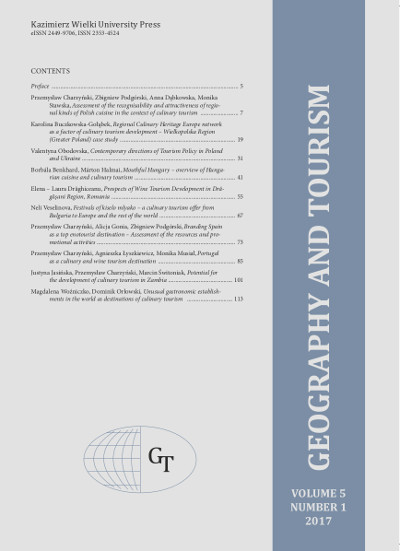Potential for the development of culinary tourism in Zambia
Słowa kluczowe:
culinary tourism, Zambia, Africa, street food, cultural tourism, beer tourismAbstrakt
Africa is still relatively undiscovered as a tourist destination. One of the lesser-known countries in Africa is Zambia. The country can offer a wide spectrum of tourist attractions from natural (e.g. Victoria Falls, wildlife safaris) to cultural ones. Discovering the native cuisine can be the main purpose of travel, as in the case of culinary tourism. This paper aims at discussing the possibilities of developing such tourism in Zambia. The indigenous cuisine of this country is based on nshima made from maize flour (mealie-meal). Nshima is mostly eaten with side dishes prepared from different kinds of vegetables, meat, fish or insects. Local people and tourists can buy food in modern shopping centres and restaurants or at local markets where street food is sold. The process of globalization, the development of the country and changes in urban space induce transformation of gastronomic services. The primary stage of this kind of transformation can be observed in the cities of Zambia, so tourists can still quite easily taste authentic local food. Traditional sorghum beers are produced in several countries of Africa. Such beer is known in Zambia as Chibuku, after the market-leading brand. The locals often pass a pot with opaque beer around a circle of friends. Such tasting can also be an attraction for daring lovers of brewery tourism.

